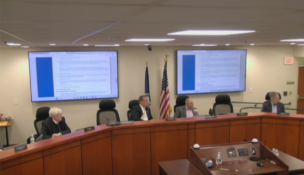VCU conference outlines real estate trends, ‘freakonomics’
A real estate conference held this week in Richmond kicked off with an economic overview and ended with advice from the co-author of “Freakonomics.”
The 2014 Real Estate Trends Conference, held at the Greater Richmond Convention Center, was presented by the VCU Kornblau Real Estate Program.
In his overview, Ken Riggs, the president and CEO of Real Estate Research Corp. in Iowa, said the commercial real estate market is approaching an inflection point.
“I view what will happen in the next 12 months to be most critical event that we’ve seen since the credit crisis,” he said. “At that point [Federal Reserve] policy, especially in terms of low interest rates, is going to be more clear in terms of direction and impact.”
Also important are market expectations. “It’s not about what happens. It’s about what do you expect to happen,” Riggs said.
He noted that 10-year Treasury rates remain about 2.2 percent although many economists last year predicted rates to be much higher by now.
Riggs said commercial real estate remains a popular investment because it involves hard assets with dependable income and moderate growth in a time of uncertainty. His research also shows that, despite growing pressure on real estate prices, prices and real estate values remain in balance.
Riggs said the questions facing investors are: Where are we in the cycle? How much of the present situation is sustainable?
Through a series of comedic anecdotes, Stephen J. Dubner, co-author of “Freakonomics,” and its most recent counterpart, “Think Like a Freak,” offered ideas on ways to think more productively, rationally and creatively. The three rules were:
1) Acknowledge what you don’t know and maybe can never know: “One cardinal rule that we give in [‘Think like a freak’] is that we should all get more comfortable saying three words that most of us loathe to say and, those three words are, ‘I don’t know,’” Dubner said.
2) Collect data and sort out the good data from the bad: “Let me tell you, there’s a lot of data that gets thrown around, in the media, in your businesses, certainly in politics, that is nothing more than survey data, and I’ve got to tell you—survey data is the lowest form of data,” said Dubner.
3) Understand how incentives work: “Incentives are hugely important, and understanding how people really respond to incentives in the real world is, I think, one of the most powerful things we can do, especially using the tools of economics,” he said.
Since being published in 2005 and 2009 respectively, “Freakonomics” and “Superfreakonomics” have sold more than 5 million copies in 35 languages. Since then, the books have spawned an enterprise that includes an award-winning blog, documentary film and weekly podcasts.



















